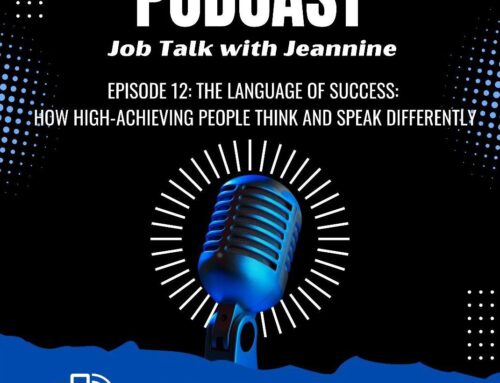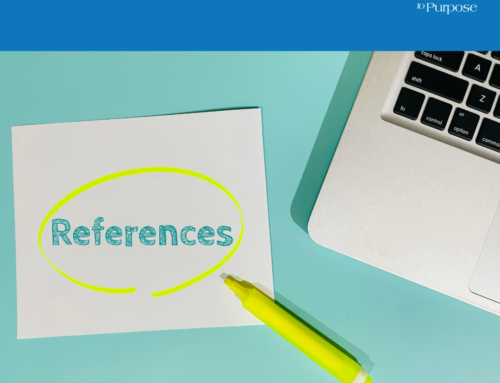
A Discussion on Military Transition – My Transition From Planet ORK (aka the Military)
By Captain Laura Hatcher, USN (Retired)
Recently, as I briskly walked up the sidewalk towards the Metro entrance, I came shoulder to shoulder with a woman and without hesitation, I made eye contact, smiled and said, “Good Morning.”
First, some context: 1 June marked the first time I’ve been off military active duty status in over 30 years. It also happened to be week three of my new civilian career (yes, I know I broke some cardinal transition rule about taking time off, but let’s face it, overachievers are motivated by fear of failure. And unemployment after a 31-year streak is not an option with a DC mortgage and 3 male teenagers who literally eat a quarter of my monthly base pay.)
A smile and a standard greeting — that’s all it was. Anyone who knew me in uniform probably recalls that you will typically get the beaming smile and some sort of greeting (unless it’s moments past 1130 am and I’m suppressing “hangry” feelings – yes, thank you military service for some of the –isms I just can’t seem to shake: eating at the same time every day; taking extra steps to avoid walking on grass; being 15 minutes early to everything and apparently politeness.)
After mumbling “Good Morning” back, the woman took a few additional steps and then turned towards me with a puzzled look and said, “Do I know you, or are you just being polite?”
“Do I know you, or are you just being polite?”
Now, I get it, I’ve been faking the whole “morning person” routine for 31 years, but that’s another military –ism that I didn’t get to vote on. Grumpy leaders don’t inspire happy followers!
“Do I know you, or are you just being polite?” That sounds like something Mork from Ork would have said as he ventured out on planet earth during an episode of “Mork and Mindy.” At the risk of dating myself, I distinctly recall when we were stationed overseas, watching reruns of “Mork and Mindy” on the AFRTS (Armed Forces Radio & Television Service) channel (or like us Navy Brats affectionately called it, “A-FARTS TV”). Somehow years later this quirky late 70’s era show has now become a metaphor for my recent military transition.
The sitcom writers successfully portrayed Mork’s awkwardness and sense of being out of place on earth. On his first attempt to fit in, he wore an earth suit backward which reminds me of how I feel when I admit to an unsuspecting retail clerk that I have no fashion sense and “yes, feel free to dress me, but hold the colors please.” Mindy was always there to serve as Mork’s earth guide and translator. Today Veterans are fortunate to have numerous Mindys they can lean on for transition assistance.
“…dress me, but hold the colors please.”
As you make or plan your transition I’d like to share a few of the Mindys that really helped me navigate through what tends to be an overwhelming and emotional experience (almost akin to shopping at the new Fort Belvoir commissary which has too many food choices and decisions to make!)
- Embrace the journey: As I gathered information in my dedicated transition notebook, I suddenly realized this was going to be a journey that needed strategic planning. I started by blocking out dedicated time (weekly) to focus on job fairs, seminars, medical appointments, etc., in other words, I booked dates with myself on the calendar. Rather than taking all my house/job-hunting, and leave entitlements at the very end, I sprinkled 1-2 days a week over the last few months of my final tour. Of course, this strategy depends on supportive leadership (which I had) and a personal commitment to focus energy on the next phase. In my mind, this was just as important as preparing to take command or moving to the next duty assignment. Looking back I am confident this deliberate pace reduced my anxiety and helped me figure out what I wanted to do, which was a struggle at first.
- Define your personal path: I can’t say enough great things about the USO Pathfinder Program, a personalized program that supports Veterans and their family up to one year prior and post-transition. They assigned me a wonderful “Pathfinder Scout,” (Meredith Kasenow assisted by Abby Dillow) who helped me design a personal action plan and provided excellent one-on-one support. The numerous seminars on resume writing, salary negotiation and networking were top notch and typically hosted by well-known, Veteran-friendly partners like Deloitte and CACI. The mandatory TAP (Transition Assistance Program) class I attended was informative but let’s face it, anything that is mandatory, typically means “one size fits all” and the Pathfinder program was definitely designed with me in mind. In addition to TAP and Pathfinder, I had an opportunity to attend a Ruehlin Career Transition Seminar, an executive-level three-day course that is usually command sponsored. These are sometimes challenging to get into, so you may find it easier to purchase their comprehensive “What’s Next?” book. Admittedly, I probably took this seminar way too late in my transition (the week after my retirement ceremony) but Bob Milligan was instrumental in preparing me for the job interviews that I had coincidently lined up during the same week.
- Find a mentor or two: American Corporate Partners is a free, year-long mentorship program that connects post 9/11 Veterans (protégés) with corporate professionals (mentors). Ms. Anne Perschel helped me self-reflect (which apparently, I forgot to do over the last three decades), better define my passions and walk with confidence into my new civilian environment. (Thank you, Anne!) I also enjoyed ACP’s effort to bring Women Veterans together in a social setting, I was truly meeting and connecting with other female Veterans in transition. Another Veteran-focused mentorship program that has a good reputation is Veterati(although I haven’t personally used it.) My favorite Veteran mentorship platform, however, is ementor. They have three communities (Veteran and Military Spouse; Military Women; and Military Entrepreneur) but I’m partial to the Military Women ementor program because I’ve been a Mentor and an advocate for the platform since its inception in 2008.
- It takes a village: Speaking of mentors, make the time to connect with old or new mentors, friends, and acquaintances; I surrounded myself with many who were all eager to support my transition and each played vital roles, regardless of how big or small his or her input was; I’m thankful to them all. (Kim Rigazzi, Steph Murphy, Rob Haire, Paul Becker, Todd Severance, Jeannine Bennett, Tom Follo, Cameron Cozzens, Tim Symons, Stefanie Goebel, Rebecca Weber, Johan Bos-Beijer, Erin Cardinal, Kerry Favero-Rivera and Susan Feland.) LinkedIn was a powerful tool for reconnecting and researching the various industries that I knew nothing about. Warning: don’t make the mistake I did! Wait to use your free, one-year, Veteran’s Premium account during the last 4-6 months of active duty, then you will also have the access post-transition. I paid for a Premium subscription for about four months, since I used my free trial too early, but it was worth it since LinkedIn is how I found my amazing new job.
- Follow an influencer or twenty: Veterans retiring today have either embraced social media or have shied away from it. It pains me to see my peers initiating their social media presence for the first time in TAP class. Try to establish your LinkedIn profile early (as a career Intelligence Officer social media was frowned upon, so I kept my profile basic for several years, but I continued to grow my network.) Eventually, you need to start following “influencers” – these are individuals who leverage social media to convey messages and who have a great impact; they are usually held in high regard. Here are few of the influencers helping transitioning Veterans that I follow: Natalie Olivero, Maureen Elias, Lida Citroen (I read her “Your Next Mission” book twice!), Michael Quinn (LinkedIn Guru), and Keith Trippie to name a few.
- “They” actually call your references: Have you put any thought into your references? Get ahead of this and make a list of six, you may never be asked for that many, but it’s good to have backups if your first few choices aren’t available. In my case, I was asked for three and I had to include at least two supervisors. Since these professionals were going to have a big influence on whether I would get a job, I made sure they had a copy of my resume and the job description I was applying for. The lesson I learned was don’t forget to explain to each reference WHY you want the job — I think I caught everyone off guard when I took my security clearance and Intelligence background and traded it in for a nonprofit job.
- Pay it forward: I went to numerous job fairs that were an utter waste of my time, but rather than get frustrated, I tried to connect with a transitioning Veteran so that we could share insights and leads. Please message me if I can be of any assistance in your journey.
“I’m just being polite…”
Well if you made it this far, you may be wondering what happened to the woman in the metro station. “Do I know you, or are you just being polite?” I responded, “I’m just being polite, yesterday was my last day of active duty and I guess I’m still used to greeting everyone.” Her face lit up, and we chatted for the rest of the way about how she could relate to what I was feeling. For a few minutes, she became another Mindy full of encouragement as she relayed that her husband had also recently transitioned from the military. She chuckled about their experience buying multiple business suits — apparently, Mork wasn’t the only one struggling with the wardrobe requirements.
As we parted ways, I flashed the smile and said, “see… ‘Good Morning’ wasn’t so bad.”
Captain Laura Hatcher, USN (Retired), successfully transitioned from Naval service in May 2018 and now works for the National Children’s Alliance, a nonprofit organization that advocates for abused children, nationwide. Laura specifically focuses on improving access to vital resources for DoD and military families. She looks forward to raising your overall awareness about child abuse matters in the United States.
Laura is also a talented photographer. Check out her work by going to Laura Hatcher Photography









